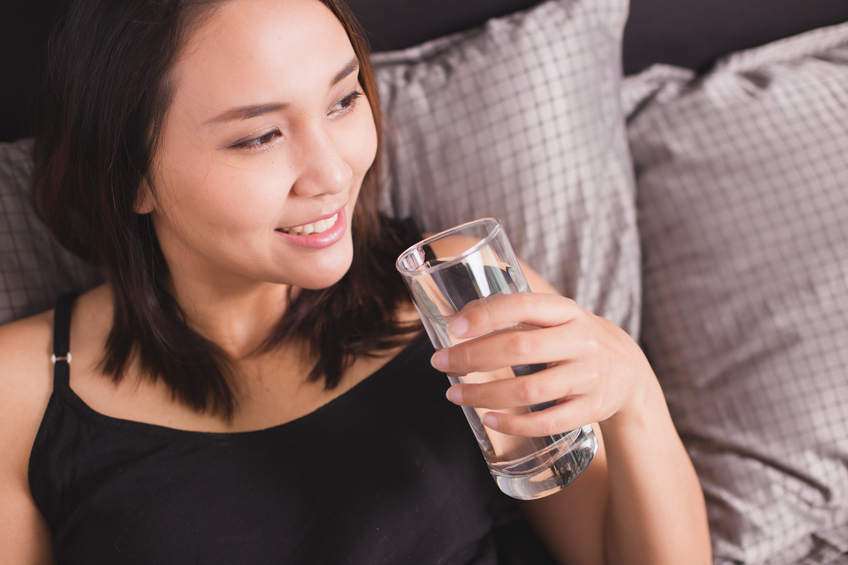 If you want to slim down and drop the circumference of your waist, you might want to think about increasing your water intake.
If you want to slim down and drop the circumference of your waist, you might want to think about increasing your water intake.
Although this might sound like old news, a brand-new study is backing the idea that the better hydrated you are, the less likely it is that you’ll be obese.
A new study published in the journal Annals of Family Medicine used data from a federal health survey to determine that the chances of being obese were 1.59 times higher for people who were poorly hydrated compared to those who were well hydrated.
They also found that hydration levels were related to body mass index—the better you’re hydrated, the lower your BMI and vice versa.
Does Drinking Water Help You Slim Down?
So—is water a magic slimming solution? Not likely, but it does help. For example, increasing water intake can help expel the water your body is holding on to, which can lead to some weight loss. But what’s more likely is that water intake is often indicative of general behavior.
For example, people who drink high amounts of water aren’t likely to be drinking sugary sodas; they’re swapping the calorie-laden beverages for a zero-calorie drink. This instantly cuts hundreds of calories per day, depending on how much soda is consumed.
Hydration also improves satiety. Drinking water before meals helps induce feelings of fullness, and having a glass during the day when you feel hungry also helps to curb appetite. In fact, sometimes hunger pangs are really just your body telling you that it needs some water.
Lastly, people who drink enough water may live healthier lifestyles in general. Hydration is extremely important to athletic performance and safety during activity, and those leading active lifestyles are likely aware of this.
There is no set requirement for water intake per day, and beverages such as black coffee and even soda can have hydrating effects. Fruits and vegetables are also packed with water. But those items all have calories, and the sugary sodas have bad calories.
Water requirements also differ based on your age, size, and activity levels. For example, someone working in construction or running outdoors in the hot sun needs far more water to stay hydrated than someone sitting in an air-conditioned office.
It’s also important to note that your risk for dehydration goes up if you’re 65 or older. People in this age group tend to not feel as thirsty even if they’re dehydrated, so it’s important to make a point of sipping fluids throughout the day to keep hydration levels up.
The best way to see if you’re adequately hydrated is to monitor your urine. Pay attention to frequency and color. If it’s been three or four hours since your last pee or the color is dark, you need water. If your urine is a very light yellow or clear, you’re good!
Sources for Today’s Article:
Chang, T., “Inadequate Hydration, BMI, and Obesity Among US Adults: NHANES 2009-2012,” Annals of Family Medicine, July/August 2016; http://www.annfammed.org/content/14/4/320, last accessed July 13, 2016; doi: 10.1370/afm.1951.
Aubrey, A., “Thirsty? New Study Links Good Hydration to Slimmer Waistlines,” NPR web site, July 12, 2016; http://www.npr.org/sections/thesalt/2016/07/12/485737511/thirsty-new-study-links-good-hydration-to-slimmer-waistlines?utm_source=facebook.com&utm_medium=social&utm_campaign=npr&utm_term=nprnews&utm_content=20160712, last accessed July 13, 2016.
